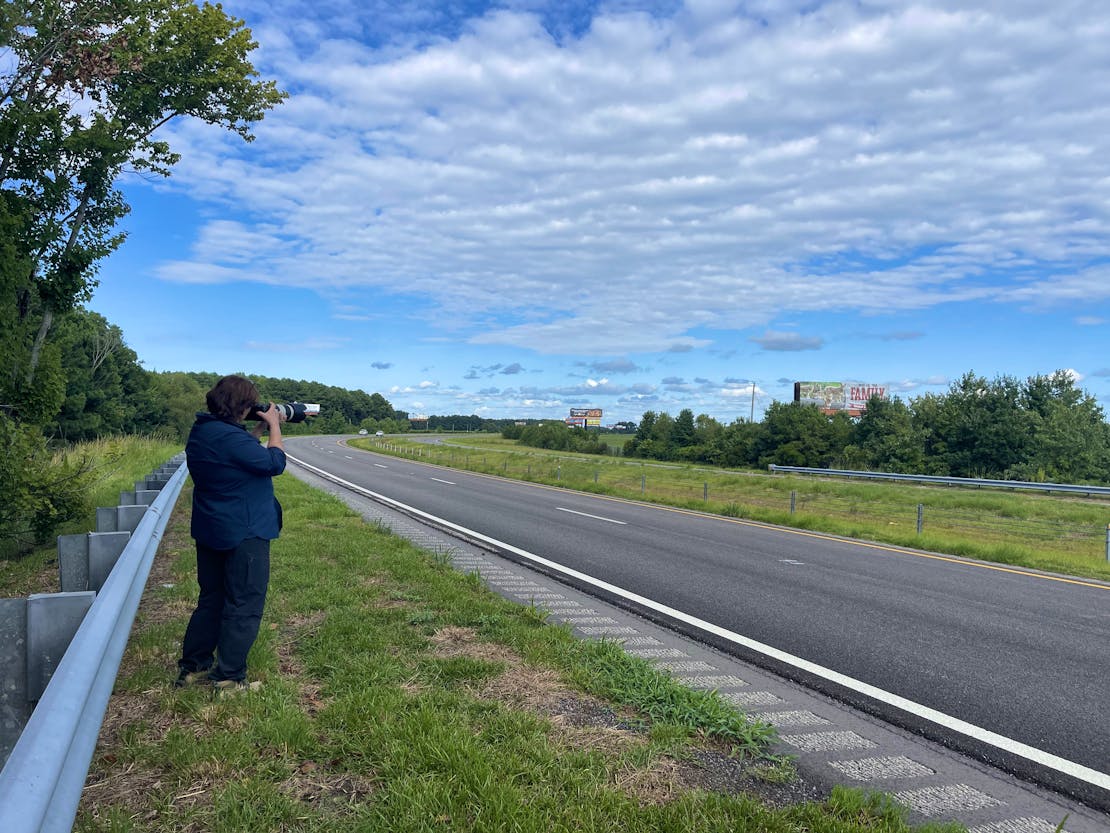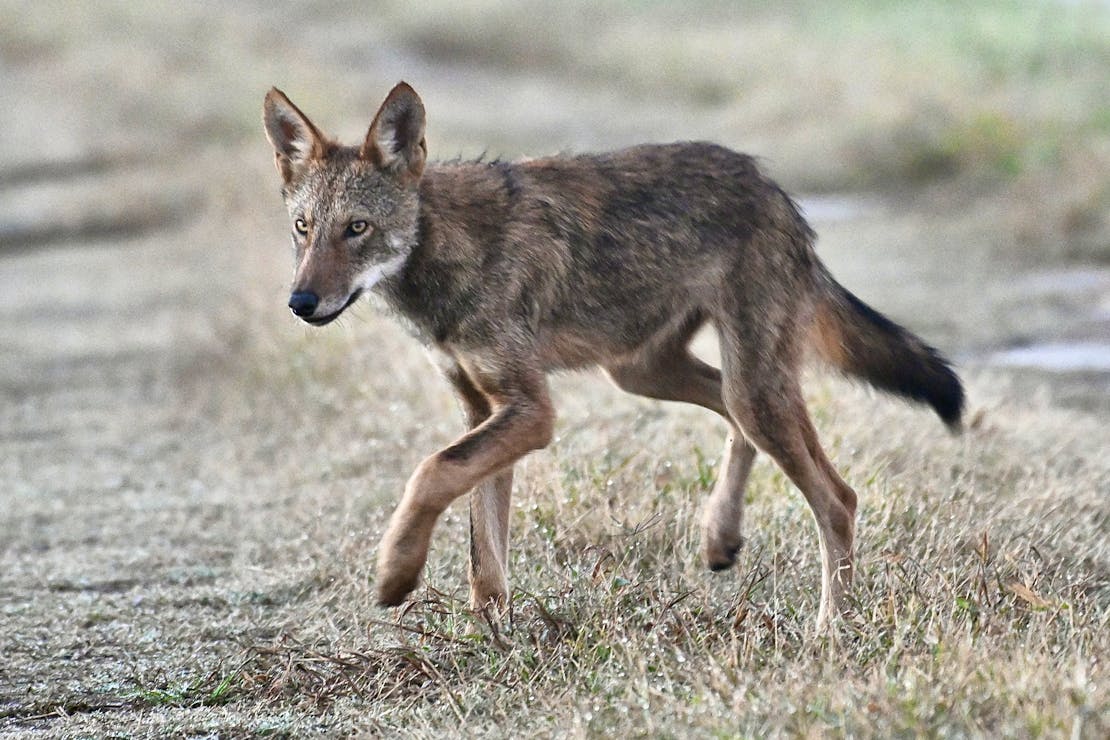By Jessie Williams, Ph.D., Defenders of Wildlife Red Wolf Ambassador
That one small dot on the horizon made all the difference in the day. In fact, it made all the difference in the world. That dot proved a point. It revealed to us that there was still hope. Defenders’ Heather Clarkson and I were traveling along the dusty roads of Alligator River National Wildlife Refuge in North Carolina, the only place in the world where they live in the wild. Red wolves are so close to extinction in the wild, you can count them on your fingers. In fact, they are so wary of humans, you would be lucky to find any to count at all. We would have been overjoyed just to see a footprint, a pile of scat or to hear a howl.
The American Red Wolf is the most endangered canid in the world and the most endangered land mammal in the U.S. This is especially sad because they are "our wolf." They are uniquely American. Yet we let them down. Their history mimics that of many of America's carnivores. Back when we had little understanding of the importance of apex predators to the health of ecosystems, we exterminated them.
Heather and I knew only eight wolves roamed the 152,000-square-acre refuge, and we dedicated the entire day to finding them. With a spirit of adventure, we declared each new bend in the road an opportunity to find wolves. But as twilight found us, our hopes began to sink with the setting sun. We agreed it was time to pack it up and go home but granted ourselves one last glance across the darkening horizon. In the distance was a subtle hue, a vague form, an undefined something of interest. We lifted our binoculars to find that looking back at us across a battlefield of time was Wolf 1849F, the oldest Red Wolf in the wild. At 12 years old, she was a living legend.
Wolf 1849F spent the majority of her life as matriarch to her pack. She witnessed a fickle history of American Red Wolf conservation. Her species dwindled to less than ten individuals before a 2021 court mandate ordered the federal government to take immediate and aggressive steps toward Red Wolf recovery. Now one year later, there are close to 20 Red Wolves in the wild—evidence that we can make progress in the species’ recovery when the will exists.
One could argue the new efforts to restore Red Wolves in the wild would have been too little, too late had it not been for Wolf 1849F. She mothered and grand-mothered her kin through the most treacherous of times. She birthed three litters of 14 pups with her life mate. But once he passed, she never bred again. Given her limited number of potential mates in the wild, she was given an added opportunity in 2021 when a young male was relocated from St. Vincent National Wildlife Refuge in Florida to Alligator River National Wildlife Refuge. Wolf 1849F was captured and placed in a large holding pen with him for a period of habituation. They became friends, but she was too old for romance.
As though Wolf 1849F understood her mission, once she and her new friend were released from the pen, she led him back to her pack, where her daughter took this male as her mate. That union resulted in the birth of a wild litter, which hadn’t occurred in the wild for four years. With that, Wolf 1849F fulfilled one of her greatest accomplishments: She gifted life to a future generation, and then abdicated her throne.
Wolf 1849F passed away in March of natural causes. She left this earth with her kin standing on a redline abutting extinction. She led her pack away from that edge many times. But now it is up to surviving Americans, both canid and human, to fulfill the task of Red Wolf recovery. If we follow by example, with the qualities this magnificent wolf embodied—American grit, ingenuity, resilience, determination and loyalty—we will succeed in the task that she passed on to us.
Listen carefully to the howling wind, and there you may hear her plea:
“Please give us safe harbor
to be,
now and always,
America’s Wolf.”
Now it’s up to us to carry on her legacy and ensure that these wolves are restored to their habitat. We are determined to succeed, on behalf of 1849F and red wolves everywhere.
Donate TODAy










Follow Defenders of Wildlife
facebook bluesky twitter instagram youtube tiktok threads linkedin